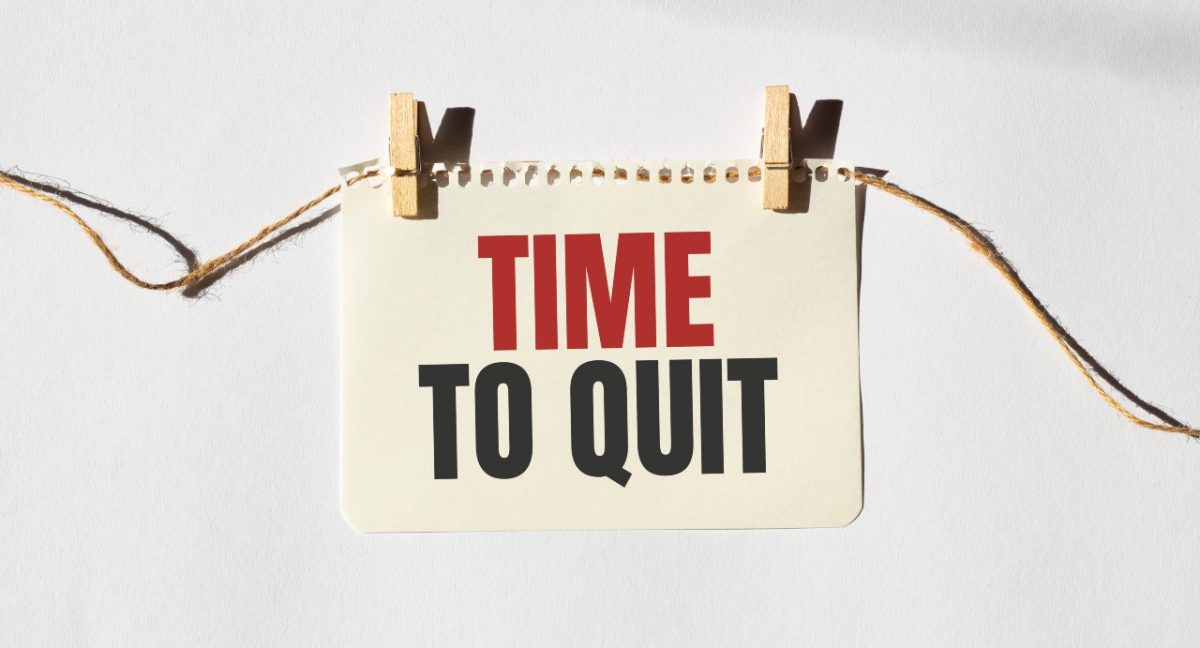Several weeks ago, I delivered a virtual presentation at a large law firm on the topic of burnout prevention. My remarks were brief, and I didn’t have a chance to teach all of my content because there were other people scheduled to speak as part of this program. Whenever I talk about burnout, I always make sure to share my story. I do this for a number of reasons, but mainly I like people to know that I’ve actually lived the thing I study. I talk very openly about how burnout was the catalyst for my career pivot into the work I have now done for the past 10 years.
The overall program was well-received, but one piece of feedback threw me for a loop. A partner who attended the program said to me, “Well, if your message to people is to quit, we’re never going to fix this problem.” I was stunned. First, that’s not my message and never has been. It was simply my own experience; and second, I’ve never thought of myself as a quitter, and I found myself unexpectedly (though temporarily) swimming in a sea of shame.
Fast forward to this morning, when I woke up to yet another headline slamming Simone Biles for her decision to opt out of Olympic competition in an effort to preserve her mental health. This time it was from Piers Morgan, saying about her decision that there is, “Nothing heroic or brave about quitting.” I profoundly disagree. I had not intended to ever talk publicly about the law firm partner’s comments to me, but quitting is an aspect of the mental health conversation that I hadn’t considered. It’s also very much connected to resilience.
Resilience consists of two parts (applicable to both individuals and teams):
- It’s the ability to navigate challenge, change, uncertainty, stress, failure, and setback; and
- It’s the ability to “bounce forward.” To learn from past challenges, failures, and setbacks and apply that knowledge going forward so that you can become more agile and adapt to future challenges and setbacks if and when they happen.
A big resilience myth is that resilience means to always persevere, but it’s more nuanced than that. Resilience is about “perseverance with a purpose.” It’s not about running yourself into the ground or encouraging your team to keep going when the goal or the outcome no longer makes sense, has changed, or has even become dangerous. Resilience requires that you continually re-evaluate your position based on new information you receive whether internally or externally from your environment.
I knew that practicing law probably wasn’t for me during my first week of law school. I said as much in the Dean’s office, through tears. He encouraged me to continue, and I’m glad I did. I enjoyed some aspects of practicing law, but it was never the best use of my strengths and talents. Burnout was a blessing in that it forced me to confront what I really wanted from my career and from my life. I had panic attacks almost every day toward the end of my law practice. I remember one specific instance riding back to the office with my colleagues after lunch and having one in the car. I could barely breathe but felt thankful I was sitting next to the door so I could grip the handle and ride it out. Had I continued to push through and persevere, I likely would have had a mental breakdown or who knows.
Simone Biles had the “twisties.” It’s a very scary condition where gymnasts can literally lose their orientation in midair. Had she continued to push through and persevere, she may have seriously injured herself or worse. Then what would we have been saying?
If you’re thinking about quitting, or find yourself tempted to judge someone else’s decision to quit, remember these three themes:
- Be curious, not judgmental. That law firm partner and I could probably each learn some valuable lessons from each other, or if nothing else, have a spirited debate. But that starts with curiosity, not judgement.
- Quitting is a decision, not a label. Calling someone a “quitter” is shaming. Quitting is a decision, not a character trait or flaw.
- It can be a phenomenal sign of resilience. Resilience is about responding to challenges in a flexible way. It can be incredibly brave to push through, and it can be incredibly brave to quit.
Someone once said to me, “One of the hardest parts of life is deciding whether to walk away or try harder,” and I have found this to be true. I started my business from scratch with just an idea I believed in, and it’s the hardest thing I have ever done professionally – by far. I have wanted to quit many times, but the right choice has consistently been to move forward. And I’m so thankful that I did. I wouldn’t have the life or the business I have now without the courage to both know when to quit and when to persevere. At the end of the day, it’s your choice, and you have to be comfortable living with whatever decision you make. And that’s really all that matters.
Please click here to order my new book, Beating Burnout at Work: Why Teams Hold the Secret to Well-Being and Resilience.







